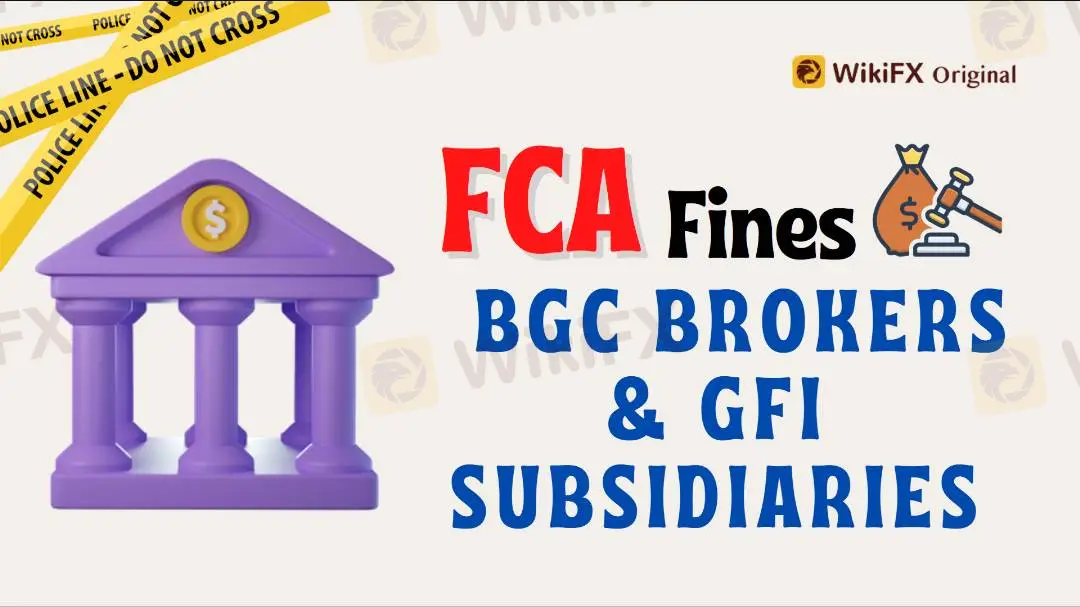简体中文
繁體中文
English
Pусский
日本語
ภาษาไทย
Tiếng Việt
Bahasa Indonesia
Español
हिन्दी
Filippiiniläinen
Français
Deutsch
Português
Türkçe
한국어
العربية
FCA Fines BGC Brokers & GFI Subsidiaries
Abstract:Due to inadequate control systems and ineffective detection of potential market abuse, the Financial Conduct Authority (FCA), the UK's regulatory watchdog, fined BGC Brokers LP and two GFI Group subsidiaries, GFI Brokers Limited and GFI Securities Limited.

Due to inadequate control systems and ineffective detection of potential market abuse, the Financial Conduct Authority (FCA), the UK's regulatory watchdog, fined BGC Brokers LP and two GFI Group subsidiaries, GFI Brokers Limited and GFI Securities Limited, a total of £4,775,200.
According to the FCA, the inter-dealer brokers did not put the Market Abuse Regulation's (MAR) requirements for trade surveillance into practise. The failure to enforce appropriate frameworks has resulted in a significant increase in the risk of suspicious trading activity going undetected.
Trading firms, in the nearly two-year period between 2016 and 2018, used flawed and ineffective surveillance procedures that were unable to adequately address market abuse. Moreover, BGC and GFI systems did not cover all asset classes under MAR.
Upon evaluating the profiles of these companies in question, WikiFX discovered that they have low Wikiscore which translates into their high underlying risk and low credibility.\



“Oversight of our markets is a regulated partnership between the FCA and market participants, and so gaps or holes in a firm's ability to monitor and detect abusive trading poses direct risks to market integrity. This case is another example of the FCA's determination to ensure firms prioritise market integrity and the maintenance of high standards of compliance,” Mark Steward, the Executive Director of Enforcement and Market Oversight at FCA, commented.
The Executive Director of Enforcement and Market Oversight at FCA, Mark Steward, explained that “oversight of our markets is a regulated partnership between the FCA and market participants, and so gaps or holes in a firm's ability to monitor and detect abusive trading poses direct risks to market integrity. This case is another example of the FCA's determination to ensure firms prioritise market integrity and the maintenance of high standards of compliance.”
MAR was established six years ago, strengthening the standards for reporting and detecting market abuse. It includes a duty to keep an eye on orders and transactions to spot possible fraud efforts.
The FCA performs self-supervision of misuse by collecting data from all players in the regulated market. A specific market surveillance team controls the suspicious transaction and order reporting (STOR) regime. As part of its mandate, it carries out ad hoc checks among market participants to assess whether they control potential market abuses.

Disclaimer:
The views in this article only represent the author's personal views, and do not constitute investment advice on this platform. This platform does not guarantee the accuracy, completeness and timeliness of the information in the article, and will not be liable for any loss caused by the use of or reliance on the information in the article.
Related broker
Read more

Justice Served: Illegal Investment Scheme Ends in RM28 Million Repayment
The Kuala Lumpur High Court has ruled that a Singaporean businessman, Chan Cheh Shin, must return RM28 million to 122 Malaysian investors after the court determined that his investment operations were conducted illegally.

RM900,000 Scammed: The Hidden Dangers of Online Investment Schemes
A 53-year-old factory manager from Malaysia has fallen victim to an online investment scam, losing over RM900,000 of her savings. This case underscores the growing threat of online scams preying on unsuspecting individuals.

Tokyo Police Arrest 4 for Unregistered FX Trading Scheme
Four men in Tokyo were arrested for running an unregistered FX trading operation, collecting over ¥1.6 billion from 1,500 investors.

Doo Group Expands Its Operations with CySEC License
Doo Financial, part of Doo Group, receives a CySEC license, allowing FX/CFD services in Europe. This strengthens its global presence and regulatory standards.
WikiFX Broker
Latest News
Why Even the Highly Educated Fall Victim to Investment Scams?
Warning Against Globalmarketsbull & Cryptclubmarket
BSP Shuts Down Uno Forex Over Serious AML Violations
ACY Securities Expands Global Footprint with South Africa Acquisition
Tokyo Police Arrest 4 for Unregistered FX Trading Scheme
Rupee gains against Euro
Axi Bids AUD 52M to Acquire Low-Cost Broker SelfWealth, Outbidding Competitor Bell Financial
Crypto Influencer's Body Found Months After Kidnapping
US Regulators Tighten Oversight on Bank Anti-Money Laundering Efforts
Doo Group Expands Its Operations with CySEC License
Currency Calculator


